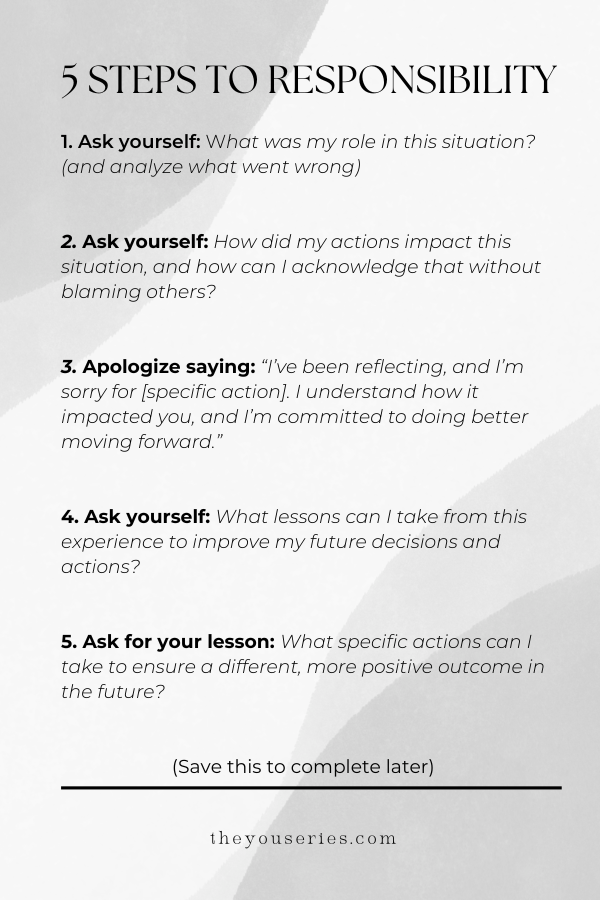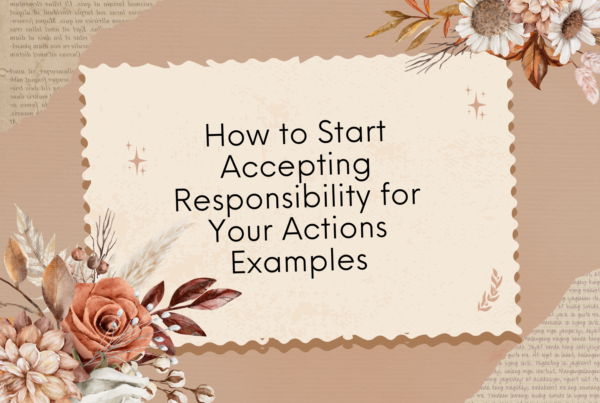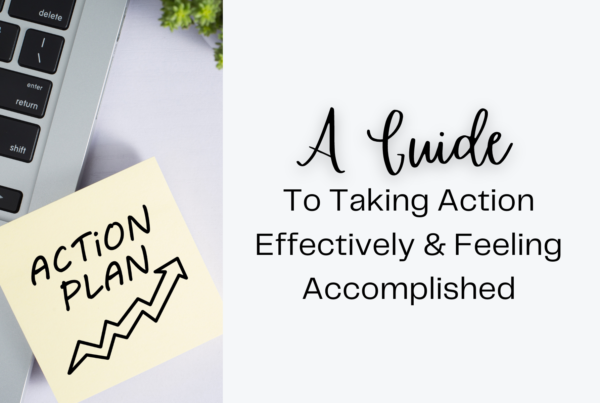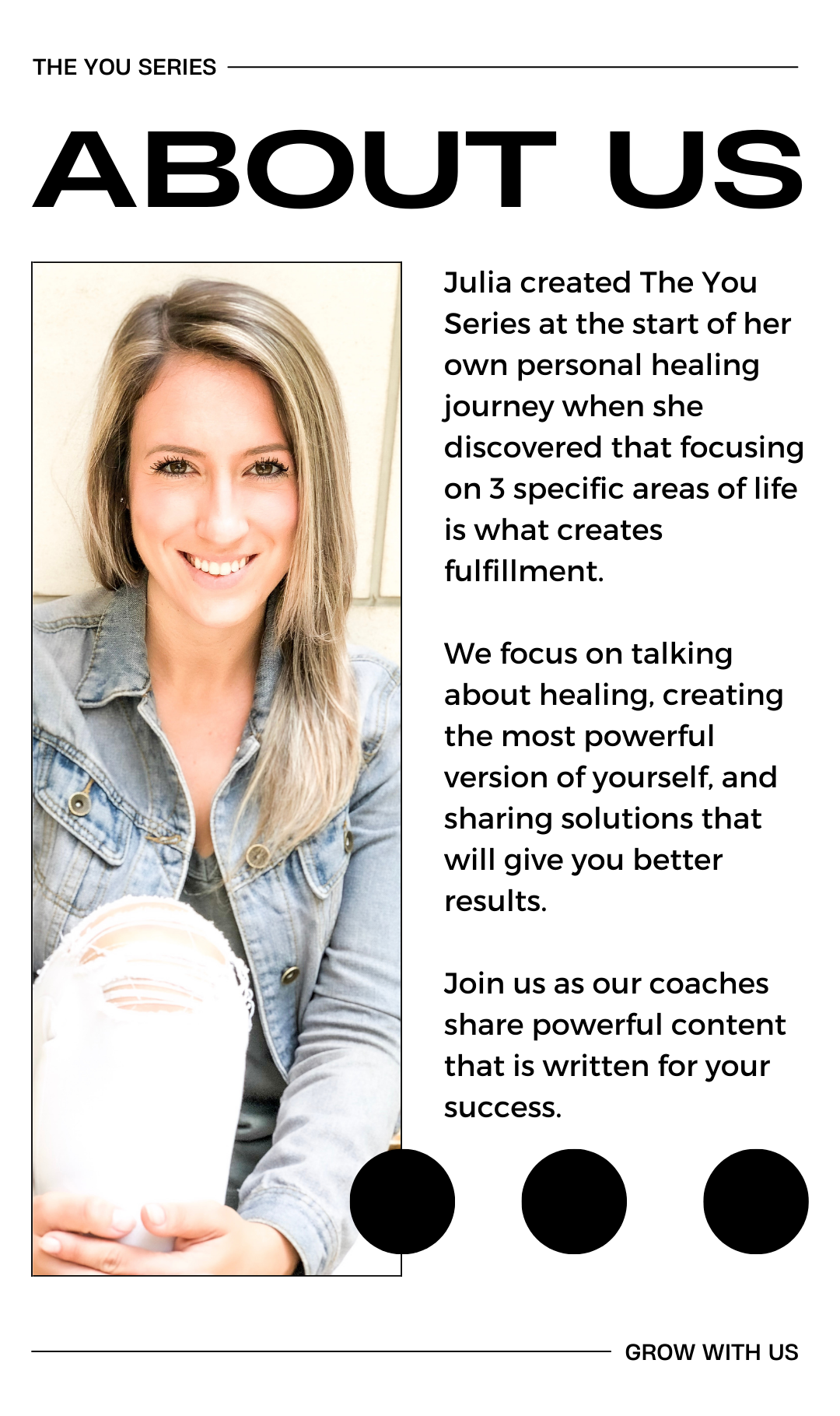Accepting responsibility for your actions is a vital part of growth. It puts you in the driver’s seat of your life, allowing you to navigate your journey powerfully and create meaningful connections with others. While it’s easy to avoid accountability, taking ownership is the key to building trust—both with others and yourself—and strengthening self-awareness and relationships.
In this blog, I’m sharing my direct, simple steps to help you take responsibility for your actions. Plus, I’ve included a series of real-life scenarios to guide you in applying responsibility in practical ways.
By the end of this post, you’ll have the tools and strategies you need to confidently embrace accountability, moving forward with clarity, integrity, and confidence.
Plus, I’ve included a series of real-life scenarios broken down into three core focus areas of life:
Core Focus Areas:
- Your Foundation
- Your Pursuits
- Your Community
These categories are how we navigate everything we do here at The You Series. They will help you apply responsibility in a structured way, empowering you to take charge of your personal growth, your ambitions, and your relationships.
My goals for you is that by the end of this post, you’ll have the tools and strategies you need to confidently start accepting responsibility for your actions, moving forward with clarity, integrity, and confidence.
The 5 Key Questions to Taking Responsibility
Accepting responsibility for your actions and decisions may feel overwhelming, but by breaking it down into manageable steps, you can make it a regular practice.
You can use these steps in any scenario that comes up to improve your ability to take responsibility and build the habit of taking responsibility.
1. Acknowledge Your Role
Recognize that your choices, words, and actions impact the outcome of any situation. Begin by reflecting on the situation and focusing inward to identify your role in it.
Ask yourself: What was my role in this situation? (and analyze what went wrong)
By asking this question, you start to separate yourself from external circumstances and focus on accepting responsibility for your actions. This process helps you become more self-aware and avoid the tendency to blame others.
2. Take Responsibility
Taking responsibility involves recognizing the impact of your actions and the consequences they may have had on others. This step is about owning your behavior without deflecting or minimizing it.
Ask yourself: How did my actions impact this situation, and how can I acknowledge that without blaming others?
This step emphasizes the importance of taking full ownership of your actions. By acknowledging the effect of your choices this way, you strengthen your integrity and build trust with others.
3. Apologize Sincerely
If your actions have affected others, offering a heartfelt apology can help mend the situation and demonstrate empathy. A sincere apology shows that you understand the impact of your actions and are willing to make things right. An apology also holds you accountable for your actions which builds the habit of accepting responsibility for your actions.
Apologize saying: “I’ve been reflecting, and I’m sorry for [specific action]. I understand how it impacted you, and I’m committed to doing better moving forward.”
Communicate openly and express a commitment to do better moving forward. Apologizing is not just about saying “sorry” but also expressing your understanding of how your actions affected the other person, showing that you value the relationship.
4. Learn from the Situation
Every experience, especially those that involve mistakes, offers an opportunity for growth. Reflect on the situation to identify the lessons that will help you avoid making similar mistakes in the future.
Ask yourself: What lessons can I take from this experience to improve my future decisions and actions?
By learning from the situation, you turn setbacks into stepping stones for growth. Accepting responsibility for your actions set’s a foundation for making better choices in the future.
5. Make a Plan for Change
To ensure that the situation doesn’t repeat itself, take action by creating a practical plan for change. This could involve setting new goals, adopting healthier habits, or improving specific skills to handle similar challenges in the future.
Ask for your lesson: What specific actions can I take to ensure a different, more positive outcome in the future?
Creating a plan for change is about being proactive in your growth. It shows that you are committed to improvement and that you’ve learned from past experiences.
By following these steps, and accepting responsibility for your actions, you’ll build the foundation to tackle each specific scenario in a more mindful and proactive way. Accepting responsibility for your actions becomes easier and more natural the more you practice it, and it leads to building greater confidence, resilience, and growth in all areas of life.
If you want a more comprehensive guide on taking responsibility check out A Complete Guide On How To Start Taking Responsibility.

Your Foundation: Personal Habits Examples
Accepting responsibility for your actions begins with how you show up for yourself every day. By cultivating self-awareness and committing to healthy habits, you lay the groundwork for a balanced and resilient life. This foundation isn’t just about physical well-being—it’s about being honest with yourself, recognizing your needs, and making choices that support long-term growth. Taking responsibility here empowers you to be your own strongest advocate and to live with integrity.
(For personal habits, mental health, and self-reflection.)
1. When You’re Feeling Overwhelmed by Your Schedule
- Ask yourself: What are the most important tasks that need my attention right now?
- Consider: Which tasks can I delegate, postpone, or eliminate?
- Plan ahead: How can I manage my time more effectively?
- Prevent burnout: What will I do differently to avoid feeling overwhelmed in the future?
2. When You Miss a Deadline or Forget a Task
- Reflect: What caused me to miss the deadline or forget the task?
- Prevent recurrence: How can I prevent this from happening again?
- Take responsibility: What steps can I take to address the missed task now?
- Improve time management: How can I stay on track in the future?
3. When You Make a Financial Mistake
- Analyze: What went wrong with my financial decision?
- Learn from it: What can I take away from this mistake?
- Develop better habits: What steps can I take to improve my finances?
- Track progress: How can I monitor my spending and savings?
4. When Improving Your Health
- Start small: What small changes can I make today?
- Take ownership: How can I be proactive in managing my health?
- Build healthy habits: What habits should I adopt for long-term health?
- Track progress: How will I hold myself accountable?
5. When You’re Feeling Unmotivated
- Identify the cause: What is the root of my lack of motivation?
- Take small steps: What small actions can I take today?
- Break down goals: How can I make my goals more manageable?
- Stay focused: What can I do to maintain motivation?
6. When You Want to Break a Habit
- Identify triggers: What sets off this habit?
- Create a plan: What specific steps will reduce or eliminate it?
- Hold yourself accountable: How will I stay accountable?
- Replace it: What positive habit can I adopt instead?
7. When Setting Boundaries
- Define boundaries: What boundaries do I need to set?
- Communicate assertively: How can I express them clearly?
- Stay consistent: How will I enforce these boundaries confidently?
- Avoid guilt: How can I stay consistent without feeling guilty?
8. When Facing a Crisis
- Stay calm: How can I keep a clear head?
- Take action: What steps can help resolve the crisis?
- Support others: How can I assist those affected?
- Learn for the future: What can I learn to handle crises better?
9. When You Achieve Success
- Recognize your role: What actions contributed to my success?
- Celebrate mindfully: How can I enjoy this without losing focus?
- Set new goals: What’s the next step in my journey?
- Acknowledge contributions: How can I recognize others’ help in my success?
10. When You Make a Mistake in a Relationship
- Own your role: What part did I play in the issue?
- Apologize sincerely: How can I make amends?
- Rebuild trust: What actions can help rebuild trust?
- Learn from it: What have I learned to prevent this in the future?
Are you new here?
I also have the following content that focuses on helping you get out of your way, build confidence & guide you toward taking effortless action:
- CORE VALUES: Learn More About Your Personal Core Values
- Manifestation Is Logical, Not Magical. You Already Do It Daily On Autopilot!
- Defining What It Means To Take Responsibility In Your Life
- Top Tips On How To Successfully Start Setting Intentions That Work For You
- Reduce Regret And Turn Your Past Into Powerful Lessons Learned In Life
- 7 Inspirational Short Quotes About Life: That Call Out For Abundance
- What is Self-Love and Everything You Need to Know to Improve Self-Love
Build More Confidence:
- How Taking 100% Responsibility Will Give You More Confidence
- Top Self-Trust Tips That Increase Your Confidence
- The Ultimate Guide To Feeling Confident About Who You Are!
Build Better Relationships:
Your Pursuits: Goals and Career Examples
Accepting responsibility for your actions in your career and personal goals is essential for meaningful progress. By owning your successes and setbacks, you can actively steer your path and learn from every experience. Whether it’s setting goals, navigating challenges, or making pivotal decisions, taking responsibility helps you align your pursuits with your values and ambitions. This approach builds not only a stronger career but also a sense of purpose and direction in all areas of personal growth.
(For career, goal-setting, leadership, and productivity.)
11. When You’re Leading a Team
- Self-assess: How did my leadership contribute to the team’s outcome?
- Consider alternatives: What could I have done differently?
- Enhance support: How can I better support the team moving forward?
- Implement improvements: What changes will enhance team collaboration?
12. When Something Happens at Work
- Reflect: What exactly happened, and how did I contribute to it?
- Take responsibility: How can I own my part in the situation?
- Address the issue: What actions do I need to take to resolve it?
- Learn from it: What can I do differently next time to prevent a similar issue?
13. When Pursuing a New Goal
- Clarify the goal: What is the main objective I’m trying to achieve?
- Identify obstacles: What challenges might get in my way?
- Set small steps: What can I do today to move closer to the goal?
- Evaluate progress: How will I track my progress to stay on course?
14. When You Face a Setback
- Assess the situation: What went wrong, and why did I experience a setback?
- Take ownership: How can I be accountable for my part in the setback?
- Find the lesson: What can I learn from this to avoid future setbacks?
- Adjust plans: How can I modify my approach to keep moving forward?
15. When You Experience Burnout
- Acknowledge your limits: How did I contribute to reaching this point of burnout?
- Take action: What steps can I take right now to rest and recover?
- Set boundaries: How can I protect myself from future burnout?
- Create a sustainable routine: What long-term changes can I make to prevent overloading myself?
16. When Balancing Multiple Responsibilities
- Prioritize tasks: Which responsibilities require immediate attention?
- Delegate where possible: What tasks can I delegate to others?
- Set realistic expectations: How can I adjust my schedule to manage all responsibilities?
- Plan for balance: How will I maintain a healthy work-life balance moving forward?
17. When You’re Starting a New Project
- Clarify the goal: What exactly am I hoping to accomplish with this project?
- Create a plan: What steps will I take to ensure the project moves forward smoothly?
- Stay focused: How will I avoid distractions and stay committed to the project?
- Track progress: How will I measure success and make adjustments as needed?
18. When Making a Career Transition
- Assess motivations: Why do I want to make this career change?
- Understand the risks: What challenges might I face during this transition?
- Take action: What are the first steps I need to take to move toward my new career?
- Set new goals: How will I establish goals to measure success in my new career path?
19. When Learning a New Skill
- Set clear objectives: What do I want to achieve by learning this skill?
- Break it down: How can I break this skill into manageable steps?
- Commit to practice: How will I incorporate regular practice into my routine?
- Track progress: How will I evaluate my improvement and adjust my approach?
20. When Setting Financial Goals
- Clarify financial goals: What specific financial milestones do I want to achieve?
- Create a plan: What steps do I need to take to reach my financial goals?
- Track progress: How will I monitor my spending and savings?
- Evaluate and adjust: How will I adjust my approach if I’m not meeting my goals?
Your Community: Building Relationships Examples
Accepting responsibility for your actions plays a vital role in building trust and connection within your relationships. Whether with family, friends, or colleagues, acknowledging your impact on others and taking steps to make amends fosters stronger, more authentic bonds. Taking responsibility within your community means listening, showing empathy, and approaching conflict with openness. This habit enhances every relationship, allowing you to nurture connections that are both meaningful and supportive.
(For relationships with friends, family, colleagues, and partners.)
21. When You Have a Conflict with a Friend
- Reflect: What caused the conflict, and what is my role in it?
- Take responsibility: How can I own my part without blaming my friend?
- Communicate openly: How can I address the issue honestly and respectfully?
- Rebuild the connection: What can I do to restore trust and harmony in the friendship?
22. When Dealing with Family Tensions
- Identify the source: What is causing the tension, and how am I involved?
- Set boundaries: What boundaries do I need to set for my emotional well-being?
- Take responsibility: How can I manage my own reactions to reduce the tension?
- Work toward resolution: What steps can I take to address the issue and move forward?
23. When You Have a Disagreement with Your Partner
- Stay calm: How can I remain calm and avoid escalating the disagreement?
- Listen actively: How can I better understand my partner’s perspective?
- Take responsibility: What part did I play in the disagreement, and how can I own it?
- Find a solution: How can we compromise or agree on a resolution moving forward?
24. When Supporting Someone in a Tough Time
- Be present: How can I offer my full attention and support to the person in need?
- Offer empathy: What can I say or do to show that I understand their feelings?
- Respect boundaries: How can I offer support without overstepping their boundaries?
- Provide practical help: What tangible actions can I take to assist them in their time of need?
25. When Someone Becomes Upset with You
- Stay calm: How can I stay composed when someone is upset with me?
- Listen: What are the reasons behind their feelings, and how can I understand them better?
- Take responsibility: What part did I play in their frustration, and how can I acknowledge it?
- Offer a solution: How can I make amends and prevent similar situations in the future?
26. When Contributing to a Group Project
- Clarify expectations: What are my responsibilities in the project?
- Collaborate effectively: How can I work well with the team and contribute my ideas?
- Stay accountable: How will I ensure I meet deadlines and deliver quality work?
- Support others: How can I offer help to teammates who may be struggling?
27. When You’re Building Trust in a Relationship
- Be consistent: How can I demonstrate reliability and honesty over time?
- Communicate openly: How can I share my thoughts and feelings in a transparent way?
- Take responsibility: How can I own up to mistakes or misunderstandings in the relationship?
- Be patient: How can I give trust time to develop and not rush the process?
28. When Practicing Empathy in Conversations
- Listen actively: How can I focus fully on what the other person is saying?
- Understand their perspective: What are they feeling, and why do they feel that way?
- Respond thoughtfully: How can I express my understanding and support without being judgmental?
- Check in: How can I ensure I’m truly helping them feel heard and understood?
Building the Habit of Taking Responsibility
Accepting responsibility for your actions is a habit that, when practiced consistently, has the power to transform how we approach life and interact with others. It’s not something that happens overnight, but with regular effort, it becomes second nature. Every time you acknowledge your role in a situation, learn from your mistakes, and take proactive steps toward improvement, you’re building a mindset that encourages growth and personal strength.
The key is to remember that habits are built through small, intentional actions. As you continue to take responsibility in your daily life, you’ll find that it becomes easier, more natural, and more empowering. Taking responsibility helps you create a life that is aligned with your values and aspirations, while also strengthening your relationships with others.
Embrace this journey, and watch how it enhances both your personal and professional life.

Julia Maria Nica
Your Transformation Guide
Julia grew up in Vancouver, B.C. She immigrated from Romania to Canada in the ’90s with her family. Julia decided to find her passion. Just like many women, she experienced her own self-image challenges. She came up with the idea of The YOU Series as a part of unraveling the pain of her life. Today she focuses on building The You Series, coaching her clients, and creating new content.






















